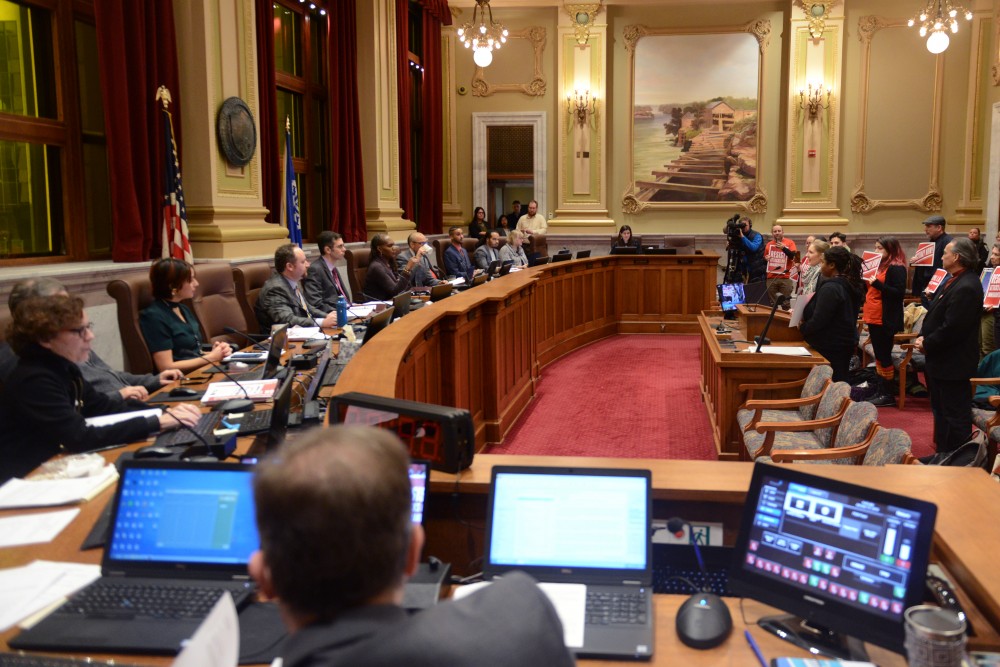Last week a Minneapolis City Council committee authorized negotiation on a universal research and real estate contract between the City and the University of Minnesota.
The master contract — which will be modeled after a similar contract the school has with Hennepin County — aims to streamline communication between Minneapolis and the University. The contract will replace about 60 existing individual agreements the two entities have signed over the past five years.
Every time Minneapolis and the University interact a new and separate contract must be negotiated, said Ward 3 City Council member Steve Fletcher. These interactions range from City-contracted research at the University to infrastructure work on campus, he said.
“It was like every possible interaction the City might have with the University, including some that are consistent and repeated, were all being negotiated separately by separate departments in separate places,” Fletcher said.
The master contract will act as a standing contract, which means the City and University won’t have to start from scratch every time they work together, making it easier for the two to collaborate, he said.
Instead of drafting a new contract, an individual with either group can issue an order to the other party, said Kevin McKoskey, director of the University’s Sponsored Projects Administration. All terms will already be established in the master contract, which will reduce the amount of time to approve a project from weeks or months to a few days, he said.
The master contract will cover research services and city-owned infrastructure projects, said Jeff Schneider, a member of the strategic management team with the City Coordinators Office.
Without a master contract, if a city department contracts a unit of the University to research a topic, the two groups must negotiate a new agreement.
Real estate access enables the Minneapolis Public Works Department to repair city-owned infrastructure on the University campus, like water mains and storm sewer lines. Like research, these projects require a written contract. Having a universal contract will streamline these two processes, said Schneider.
“It’s basically a formal handshake between the two organizations to say ‘we’re already doing business together, let’s make it easier and better,’” he said.
Separate contracts also result in unnecessary administrative costs that could be avoided with a single contract, Schneider said.
The master contract will be modeled after the University’s agreement with Hennepin County, said McKoskey. The University has utilized the county contract for over ten years.
Following the authorization last week, the University and the City will begin negotiations of contract details, said Fletcher. The contract will likely be finalized this fall.
“I would like the University to be one of the major economic and creative drivers of our city because it’s a huge potential resource,” Fletcher said. “Cities like Boston and San Francisco have really engaged universities in their economy and art scene and there is a huge benefit to the students and the city, but we just haven’t been as good at that in Minneapolis, but I hope this contract is a step in that direction.”








